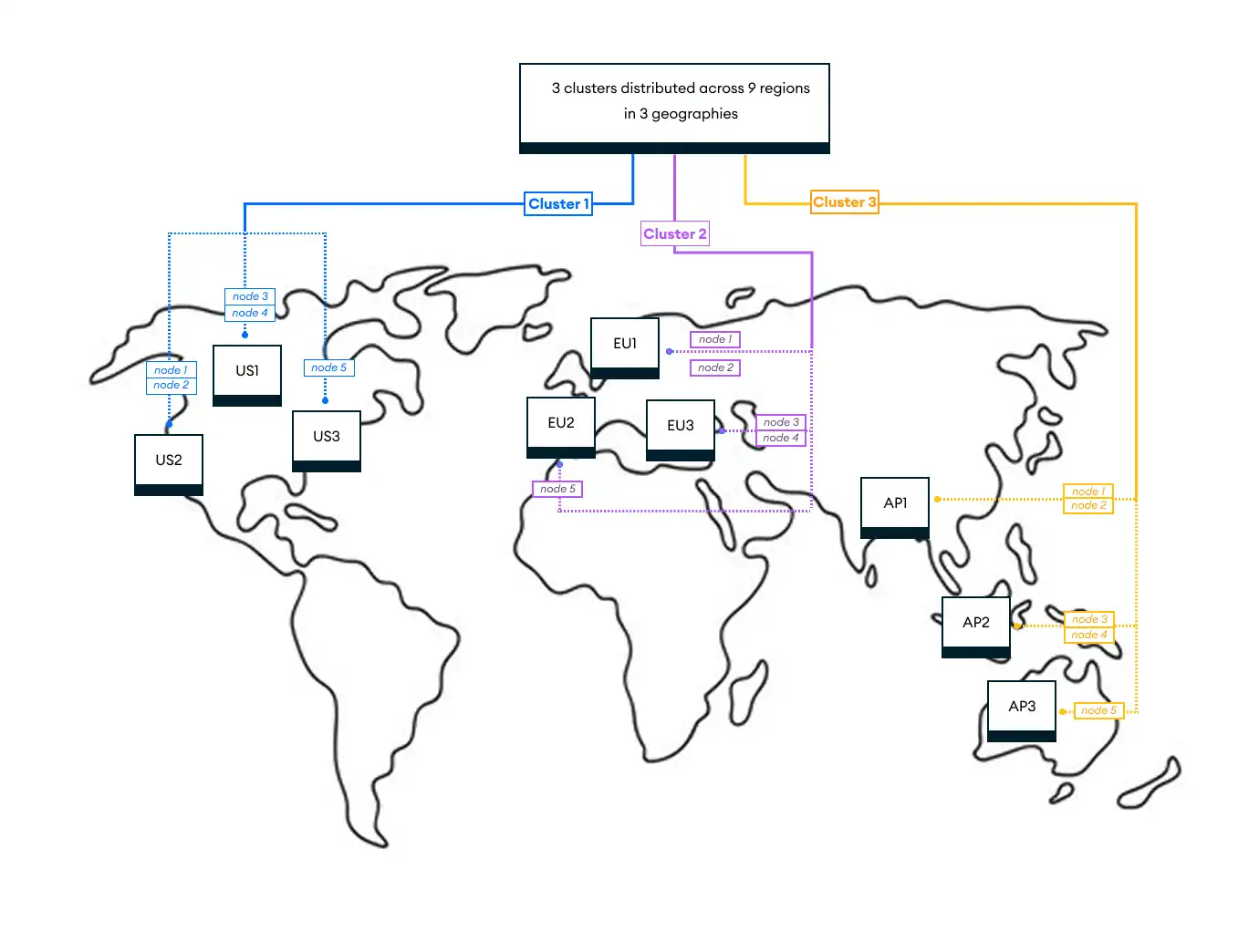Atlas supports distributing your data globally, to ensure high availability, low latency, and meet regulatory compliance. Careful planning of the distribution of your data can ensure you meet compliance requirements for data sovereignty, such as the EU's General Data Protection Regulation (GDPR) law. You can set up one or more clusters in the regions where you need to ensure data sovereignty, and configure your architecture to write that specific data to the correct clusters or nodes with an appropriate zone or geo shard key.
The following diagram shows a topology distributed globally. It has 3 clusters, one in each of 3 geographies. Each cluster has the same regional distribution of 5 nodes spread across 3 regions.
This topology allows the application to send region specific data to only the appropriate cluster for that region. So EU data that is covered by GDPR is written by the application to Cluster 2 with nodes located in the EU. Similarly, APAC specific data is only written to Cluster 3, where all nodes are located in APAC locations. Any global data, or data that is not regionally specific, is written to all 3 clusters. This ensures that the outage of any one cluster does not have the potential to impact other portions of the application.

With a large global enterprise or global application, architects may want to deploy clusters across multiple geographies or continents. In general, the best practice is to deploy separate multi-region clusters in each geography. This gives the application high availability in a single region and keeps the data sovereignty requirements straightforward. A proxy or redirect layer should identify where the request is coming from and assign them to the correct geography.
While customers can leverage Atlas’ multi-region deployments to deploy across multiple geographies they tend not to avoid the complexity that comes from complying with data sovereignty requirements. A replica set will natively replicate all data to all secondary nodes, for user-centric data that must satisfy sovereignty requirements like GDPR, this will not work and this architecture should only be considered for public reference data that is the same globally without sovereignty requirements. Clusters can be sharded with a shard key that contains the region information where data should be stored to comply with sovereignty requirements and Atlas has a feature called Global Clusters which streamlines the set-up of the shard key corresponding to the geographic zone. However, in practice, enterprises opt to deploy separate clusters in different regions for the same application so that they do not have to deal with the complexity associated with ensuring application code is properly setting the correct shard key by geographic zone.
Global Clusters
Global Atlas clusters are used in the most complex deployments, and therefore require very careful planning. In almost all cases, a Multi-Region Deployment Paradigm can fulfill your needs.
You might consider a global deployment strategy if:
You need a single global connection string.
You need to perform global aggregations across all clusters/shards.
You need the ability to read/write for all clusters/shards from everywhere in one logical cluster, while also having regional reads/ writes.
Important
The complexity of global clusters, and the unique needs and offerings of specific geographic regions, makes documenting a single best practice difficult. Contact MongoDB's MongoDB's Professional Services team to discuss your specific requirements.